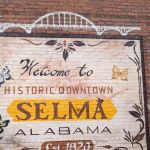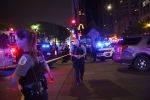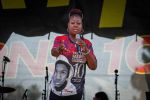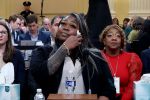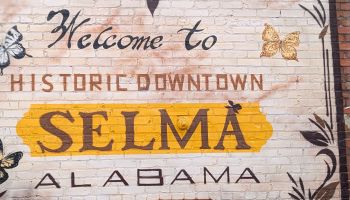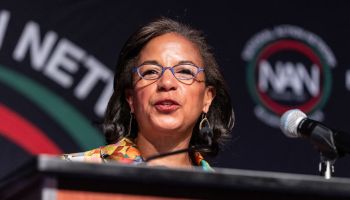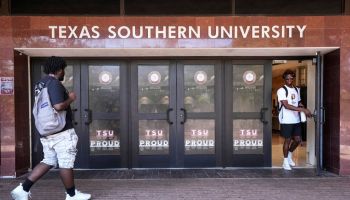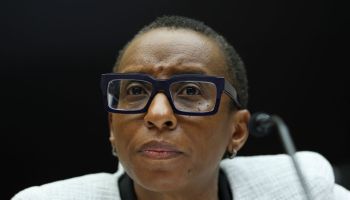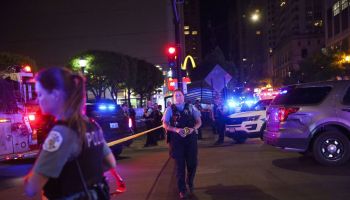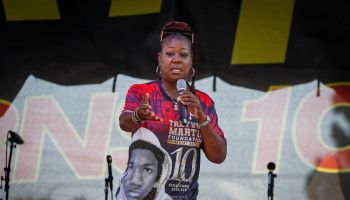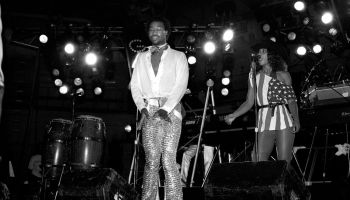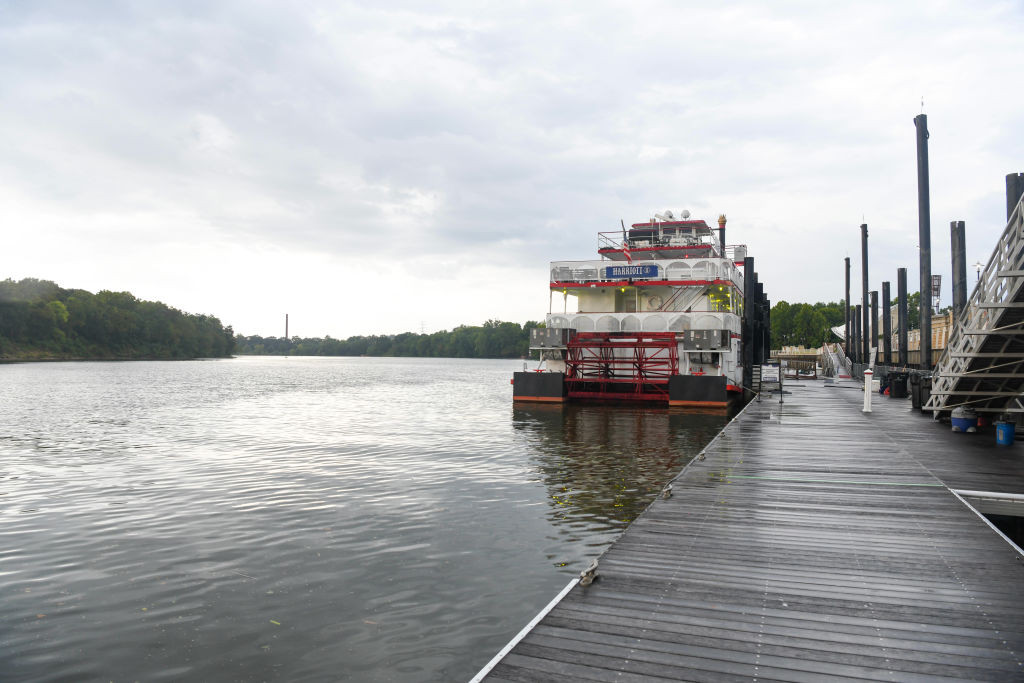
Source: Julie Bennett / Getty
Listen: The brawl that occurred over the weekend on the dock at Montgomery’s Riverfront Park has become the cathartic gift that keeps on giving for Black people all over the interwebs. The memes, the video commentaries, the jokes, the soundtracks, the clever alternative names for the teen who swam to the melee—it’s been a much-needed breath of fresh air for the diaspora.
That being said—summa y’all are ruining it for me. And you’re doing it with five simple words:
“We are not our ancestors.”
First off, this loud, wrong and ahistorical sentiment wasn’t born after the mega MAGAt-merking melee in Montgomery, where Black people came together to meet white entitlement and whiter violence with Black unity and Blacker fists (and an occasional chair, of course).
For the better part of the past decade, “We are not our ancestors” has been somewhat of a rallying cry said mostly by younger Black people who I would guess learned their Black history from the likes of Ron DeSantis if not for the fact that even Florida’s backward and racist retelling of Black history requires lessons on how Black people also committed acts of violence on white people during the nation’s historic race massacres. (I mean, Florida’s agenda appears to be more about casting Black people who protected themselves and their families as “also violent” than it is about highlighting the fact that Black people had the absolute right to protect themselves and their families—but still.)
My point is, it’s really obvious that a lot of Black folks haven’t properly learned our history—which is understandable. It’s not like any K-12 school in America goes out of its way to teach that during the 17th, 18th and 19th centuries, hardly a decade went by without a major slave rebellion happening in the antebellum South.
We were intentionally not taught that slave revolts were such a great and constant concern in America that some Confederate states implemented “Black codes” or “slave codes” to prevent them from happening by disallowing enslaved people to meet in groups of more than four or travel more than 10 miles from their master’s residence.
Black people weren’t taught that in 1680 Virginia’s General Assembly passed “An act for preventing Negroes Insurrections,” which barred enslaved people (or Black people in general, actually) from meeting in groups, carrying weapons, or leaving their masters’ property without their masters’ written permission, among other things.
All I’m saying is—if our ancestors were such passive, demure and obedient receivers of violence and oppression, why were white people so afraid of them revolting?
But, whatever. Let’s just say for the sake of a loud, wrong and ahistorical argument that the hundreds of enslaved people who spent some two centuries staging slave rebellions represent the exception and not the rule. After all, I’m willing to stipulate that there were more enslaved people who didn’t participate in uprisings than did. But are we really all that different?
Setting aside the glaring fact that our ancestors endured structural oppression that we couldn’t imagine even as systemic racism is still very much a thing, are we not the generation of Black folks who are, at best, just as likely to respond to white racism and/or violence by pulling out our phones to record it as we are to start fighting?
Do y’all remember that time a white man attacked a Black McDonald’s employee over a straw and not a single Black person stepped in to help until it was time to restrain the young Black woman from beating the bologna sent off of her white attacker? Were the Black bystanders not of the “We are not our ancestors” generation just as much as the Black girl who fought?
Hell, I’m willing to bet that if we did a head count, we’d find that even at the royal Caucasian smackdown in Montgomery there were more Black people observing and recording the event than there were throwing hands. And I have no problem with that—especially since the Black folks fighting outnumbered their melanin-deficient punching bags anyway—until Black people start using our collective moment of communal pride to disrespect our ancestors.
And, make no mistake, it is disrespectful no matter how one tries to justify it.
Many on social media have tried to spin things by claiming that all “We are not our ancestors” really means is we don’t have to take what our ancestors had to take because of their sacrifice. And it’s absolutely true that we get to say “We are not our ancestors” only because our ancestors paved the way for the limited degree of agency and freedom that we currently enjoy. But that’s also why the statement is disrespectful.
How exactly is “we appreciate what our ancestors sacrificed for us” being conveyed through the words “We are not our ancestors”? Would you say it in front of your ancestors? Would you proudly wear a t-shirt that reads “We are not our ancestors” if they were physically standing in your presence? You’d look Harriet Tubman, Nat Turner, Malcolm X, and the deceased members of the Black Panther Party square in their faces and declare that “We are not our ancestors”? Do you think they’d receive those words as a statement of deference as opposed to condescension?
If “We are not our ancestors” is not meant to imply that we are bolder and less controllable than the generations that came before us, why do we only say it in response to videos that show us fighting white racists? Why don’t we say it in response to the myriad of videos that show us recording racism to post online so the internet can give us our recourse? Why don’t we say it when we fail to protect each other?
If what you mean by “We are not our ancestors” is “They fought so we could fight harder,” why not just say that? Black Twitter is certainly clever enough to find a way to word that rallying cry in a way that rolls off the tongue as well as the flippant and clearly inaccurate rallying cry it would replace.
Nah—I’m just not buying it. Many of us aren’t.
Here’s a final thought: We don’t protest inequality by walking into certain death like our ancestors did.
Sure, we engage in protests. We made “Black Lives Matter” a thing because we know how disposable Black life is treated, even now. So, we often protest knowing there’s a chance we’ll be hurt—even killed. But we don’t march into situations where we know bodily injury and/or death are all but certain. The differences between Aug. 5 and Bloody Sunday aren’t limited to the fact that we inflicted protective violence in the former and had violence inflicted on us while we were unprotected during the latter. The participants of the 1965 march from Selma to Montgomery knew they were marching into a situation they might not march out of. At Riverfront Park, the most those fighting had to fear were assault charges.
In fact, one could argue that we are, indeed, not like our ancestors because they were well-practiced in putting their lives on the line in ways we could never have. But I prefer not to look at it that way. I prefer to believe we absolutely are our ancestors. We are their legacy and their reflection. And we should declare that proudly every time.
We are our ancestors through and through. The end.
SEE ALSO:
What Caused The Montgomery Riverfront Brawl?
Black People Have Been Having A Time With The ‘Fade In The Water’

